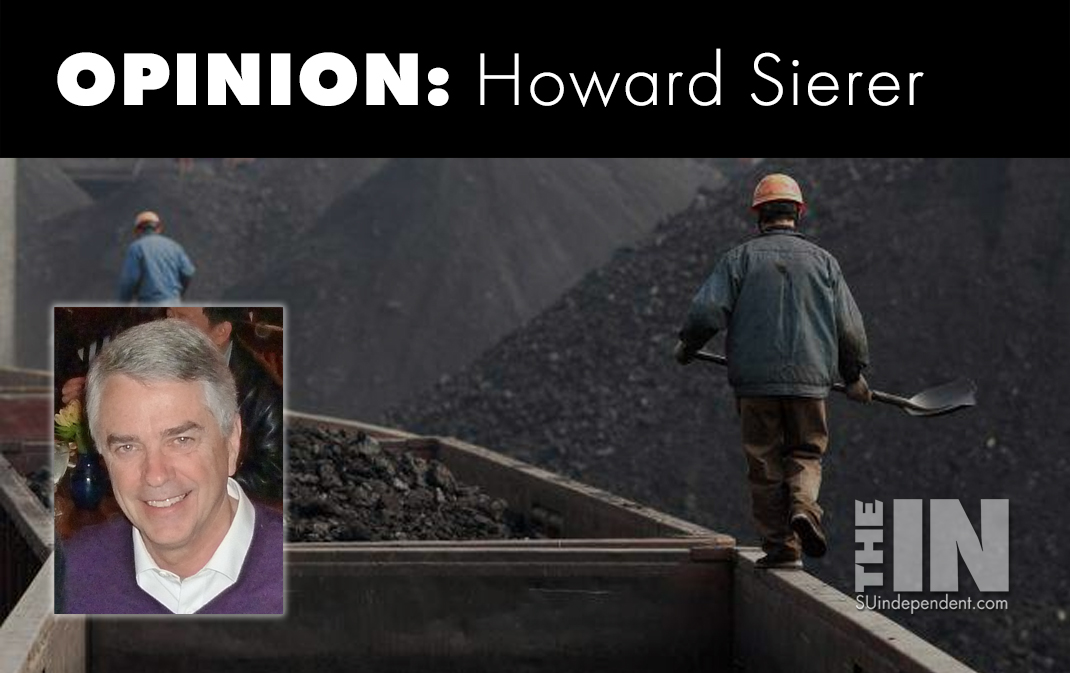
Draining the Beltway Swamp
– By Howard Sierer –
Here’s a Supreme Court case to keep an eye on despite its run-of-the-mill title: West Virginia v. Environmental Protection Agency.
The specifics of the case – the coal-producing state of West Virginia is fighting EPA rulings that would limit coal’s use in electric power generation – disguise its potential impact on almost all Americans. At issue is the extent to which federal agencies can expand their scope and powers without clear authorization from Congress.
The EPA was given authority to regulate pollutants from coal-fired power plants. But it has decided that it has authority to require power-generating companies to make investments in other forms of power generation, for example, solar power, to offset remaining pollutants. That’s analogous to requiring homeowners to install home solar panels to offset their cars’ pollutants.
Regulations promulgated during the COVID-19 pandemic show how federal agencies use “creative” interpretations of their authority in effect to write new laws. In September 2020, the Centers for Disease Control and Prevention imposed a nationwide “Temporary Halt in Residential Evictions to Prevent the Further Spread of COVID-19.” Another example: the Biden administration pushed the Occupational Safety and Health Administration to issue a mandate that all employers with over 100 employees must require their employees to get COVID vaccinations or lose their jobs.
Whether you agree or disagree with the specifics of these regulations, allowing any federal agency to decide unilaterally that its charter includes an ever-expanding scope should be frightening to us all. Medical bureaucrats establishing rent controls and workplace safety bureaucrats mandating individual health precautions are far afield from their respective areas of expertise and far afield from what Congress had in mind with its enabling legislation. Both regulations were overturned by the courts but only after months of uncertainty.
Constitutional issues arise when agencies go beyond regulating and venture into establishing policy. Article I of the Constitution states that “all legislative powers herein granted shall be vested in a Congress of the United States.” The executive branch implements those laws; it doesn’t rewrite or expand them.
Agencies have a clear place and role in our democracy. No one wants Congress bogged down with legislating every detail in federal regulations. Allocating communications frequencies, specifying highway design, and approving new drugs are examples of the myriad of specifics that must be regulated by bureaucrats.
Yet even when Congress is clear, bureaucrats find ways to expand their scope. For example, in 1972 Congress granted the EPA authority to regulate pollution in “navigable waterways.” Over the last 50 years, the EPA has steadily redefined what constitutes a “navigable waterway” to suit the environmental preferences of the then-current administration, relegating Congress to a bystander.
Look at the case of Chantell and Michael Sackett who bought land near Priest Lake, Idaho in 2004 to build a home. Despite the fact that their 0.63-acre lot had no lake, pond, river or stream on it, the EPA demanded that the Sacketts halt excavation work, demanded that the land be restored to its original condition and threatened the Sacketts with $75,000 per day in fines if they failed to comply.
When the Sacketts tried to go to court, the EPA argued that instead they must first appeal to an EPA administrative law judge and that federal courts had no jurisdiction until that lengthy process was completed.
And there’s the rub. If any of us disagree with a decision by a federal agency – the EPA, the IRS any other agency whose rulings impact us personally – we are shunted off to one of that agency’s in-house administrative law judges who acts as both judge and jury. Twenty-six federal departments have such judges.
The Sacketts have contested this system for 18 years and are now back before the Supreme Court but only because their case was taken up by a legal foundation. Most of us wouldn’t have the time or the resources even to hire an attorney to challenge an administrative law judge and wouldn’t be so lucky as to have a legal foundation take our case.
Is there a solution to the overarching power of the administrative state, a.k.a. the beltway swamp? Unfortunately, most of these bureaucrats enjoy civil service status and, while nominally part of the administrative branch, can’t be fired even by the president. They’ve grown to become a de facto fourth branch of government, the “swamp.”
The otherwise-dry West Virginia v. Environmental Protection Agency case now coming before the Supreme Court holds out hope for all of us who find federal government authoritarianism a threat to civil liberties. In striking down OSHA’s employee COVID vaccination mandate, the Court required “Congress to speak clearly when authorizing an agency to exercise powers of vast economic and political significance.”
For too long, enterprising bureaucrats have been free to implement their personal political and economic preferences, enhancing their career prospects in the process. In today’s polarized political environment, Congress often hasn’t had the will to define clearly its intent, resulting in ever-widening government control of routine local and personal activities.
Let’s hope that the Supreme Court takes a step toward reining in the beltway swamp creatures.
Viewpoints and perspectives expressed throughout The Independent are those of the individual contributors. They do not necessarily reflect those held by the staff of The Independent or our advertising sponsors. Your comments, rebuttals, and contributions are welcome in accordance with our Terms of Service. Please be respectful and abide by our Community Rules. If you have privacy concerns you can view our Privacy Policy here. Thank you!
Click here to submit an article, guest opinion piece, or a Letter to the Editor




